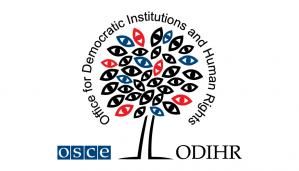OSCE/ODIHR

The OSCE participating States have pledged to promote the remembrance of and education about this and other genocides. They have also pledged to undertake effective measures to eradicate discrimination against Roma and Sinti and enhance their equality of opportunity.Teaching about and remembering the Roma and Sinti genocide remains a crucial priority. There is still a lack of knowledge about this tragedy. Education lays the basis for promoting tolerance and non-discrimination, thus countering persistent prejudice, hate speech and hate crimes against Roma and Sinti. At the same time, remembrance activities pay respect to the victims and ensure that the genocide of the Roma and Sinti becomes part of the public consciousness. We must ensure that the many sites of persecution and extermination are recognized and remembered.
Since 2008 ODIHR has published a bi-annual report on Holocaust Remembrance Days in the OSCE Region. In the report published in 2012, which analysed responses from 44 participating States, ODIHR also included information about remembrance days dedicated to the commemoration of the Roma and Sinti genocide. At that time, six countries reported that they had special commemoration days and events for the Roma and Sinti genocide under National Socialism. Of these Hungary, Poland, Slovakia and Ukraine observe 2 August as Roma and Sinti Genocide Remembrance Day.
Several OSCE participating States have started to engage in developing educational materials or commemorating the persecution, including with official recognition. In order to establish what practices commemorating and educating about the Roma and Sinti genocide exist in the OSCE space, ODIHR decided to dedicate a full report to this topic.
Read more about the activities of the OSCE Office for Democratic Institutions and Human Rights


